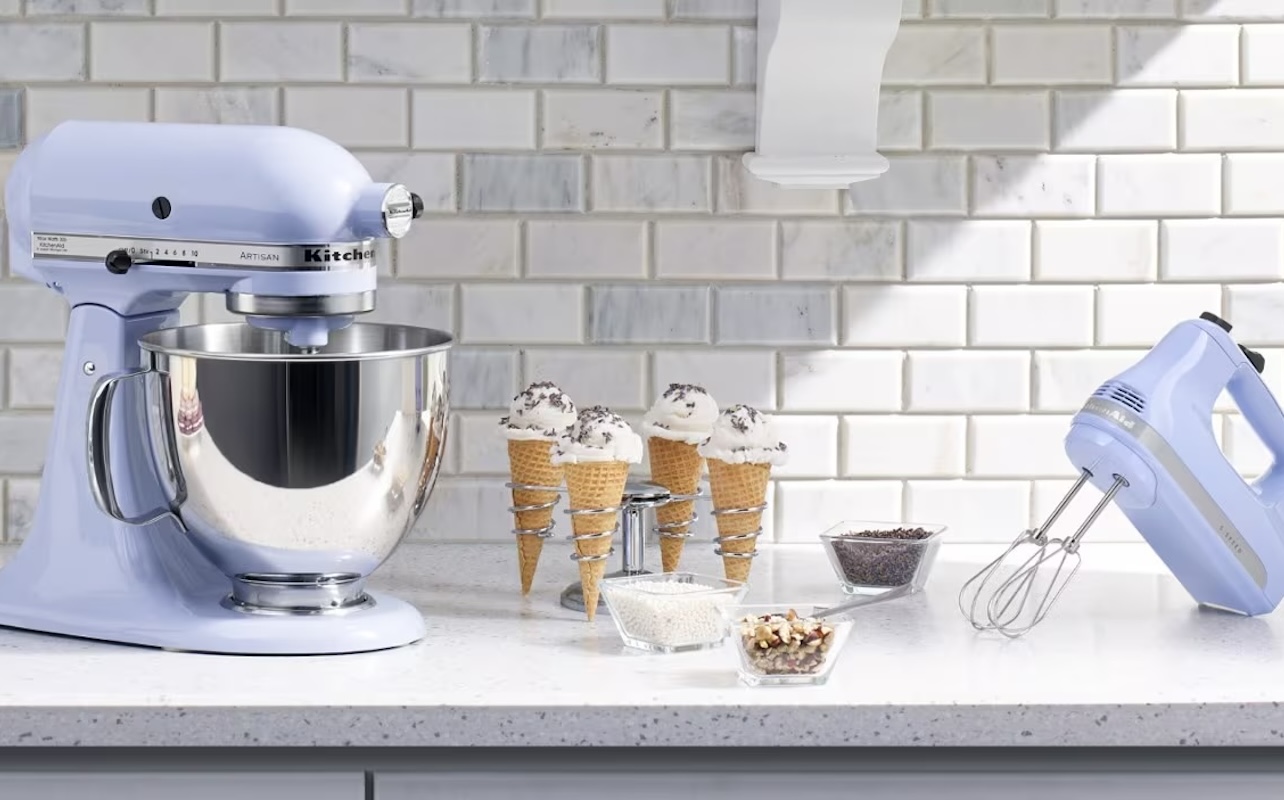
There’s nothing quite like the smell of freshly baked cookies wafting through your kitchen, or the satisfaction of whipping up a perfect birthday cake from scratch. But behind every great baker is a great mixer, and that’s where the debate begins: hand mixer vs. stand mixer. Whether you’re making your very first batch of cupcakes or you’re a seasoned home chef dreaming of sourdough, having the right mixer can make a world of difference in your kitchen. But with so many options out there, how do you decide between a hand mixer and a stand mixer?
This guide will walk you through the key differences and pros and cons. It’ll help you determine which mixer is the better fit for your lifestyle, budget, and baking needs. Let’s get mixing!
What is a hand mixer?
A hand mixer is a small, portable appliance that you hold in your hand while mixing ingredients in a separate mixing bowl (or other dish). Hand mixers typically come with two detachable beaters; occasionally, they’ll come with additional beater accessories as well. Most hand mixers offer a few different speed settings, making them a straightforward choice for many home cooks.
Because of their compact size, hand mixers are perfect for:
- Whipping cream
- Beating eggs
- Mixing cake batter or cookie dough
- Preparing small batches of frosting
Why people love hand mixers:
- Lightweight and portable: You can easily move them around the kitchen and store them in a drawer or cupboard.
- Easy to clean: Most models have detachable beaters that are dishwasher safe.
- Budget-friendly: Great if you’re just getting into baking or only bake occasionally.
Hand mixers are also ideal for those with limited counter space or smaller kitchens. You can pull them out only when you need them—no permanent counter real estate required.
What is a stand mixer?
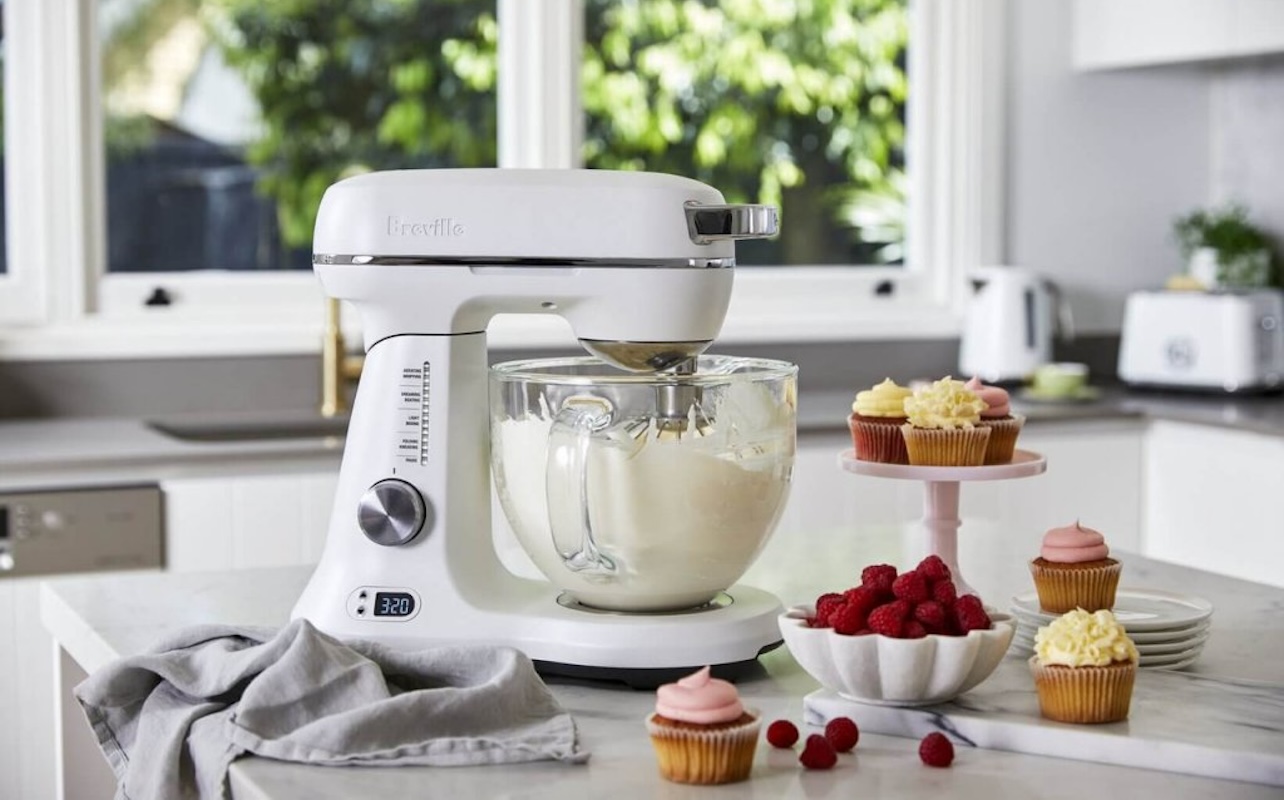
A stand mixer is a heavier-duty countertop appliance with a fixed mixing bowl and a motorized head. They do the hard work for you. Stand mixers are known for their powerful performance and versatility, often coming with multiple attachments. Most stand mixers offer the option to purchase additional attachments separately, making them an appliance can grow to meet your growing needs.
Stand mixers shine in more intensive or frequent kitchen tasks like:
- Kneading bread dough
- Mixing large batches of batter
- Making pasta or grinding meat (with attachments)
Why stand mixers are a baker’s best friend:
- Hands-free operation: You can prep other ingredients while your stand mixer does the mixing.
- Powerful motor: Stand mixers make quick work of thick or sticky doughs.
- Versatility: Attachments like dough hooks, whisks, pasta rollers, and meat grinders turn stand mixers into multi-purpose machines.
Though they’re a costlier item to invest in for your kitchen than other types of mixers, stand mixers are a staple in the kitchens of passionate bakers and cooks alike.
Key differences between hand mixers and stand mixers
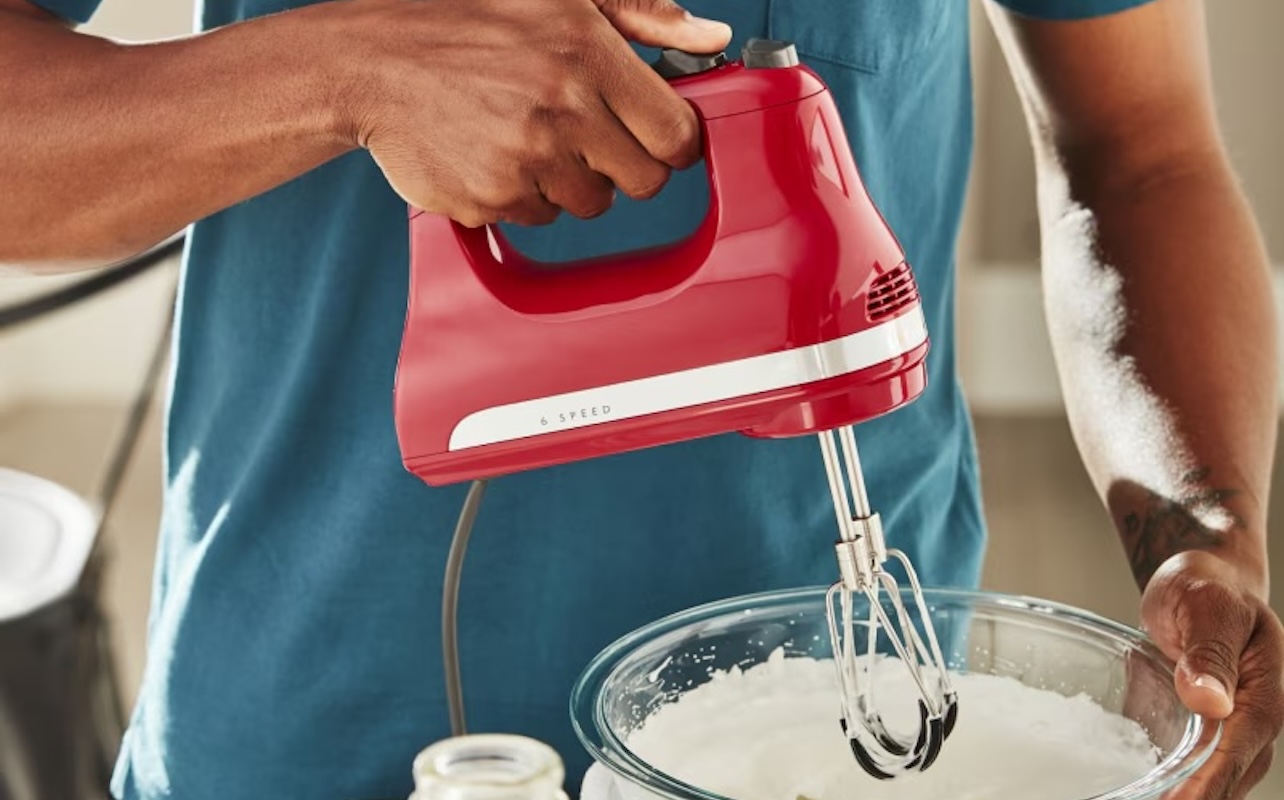
To make the mixer vs hand mixer decision easier, here’s how they stack up in the areas that matter most.
Power and performance
Stand mixers usually have higher wattage than other types of mixers. They offer stronger, more consistent power. That means they can handle heavier doughs and longer mixing sessions without overheating or slowing down. Hand mixers are less powerful but sufficient for everyday mixing tasks.
Capacity
Stand mixers come with their own bowl, usually larger and capable of handling double or triple batches. Hand mixers rely on your own mixing bowls and are better suited for smaller quantities.
Control and convenience
A hand mixer gives you the freedom to move around and control mixing angles, but you’ll need to hold it the entire time. Stand mixers, on the other hand, mix hands-free—you just set the speed and walk away. Stand mixers also offer better stability as their stand, motor, mixer, and mixing bowl are all attached.
Storage and space
Hand mixers are compact and can be stored easily. Stand mixers require a dedicated spot on your counter or in a cabinet because of their size and weight.
Cleaning and maintenance
Hand mixers are generally easier to clean, with fewer parts. Stand mixers often have larger bowls and multiple attachments, which means more cleanup, although many parts are dishwasher-safe.
Pros and cons of each mixer
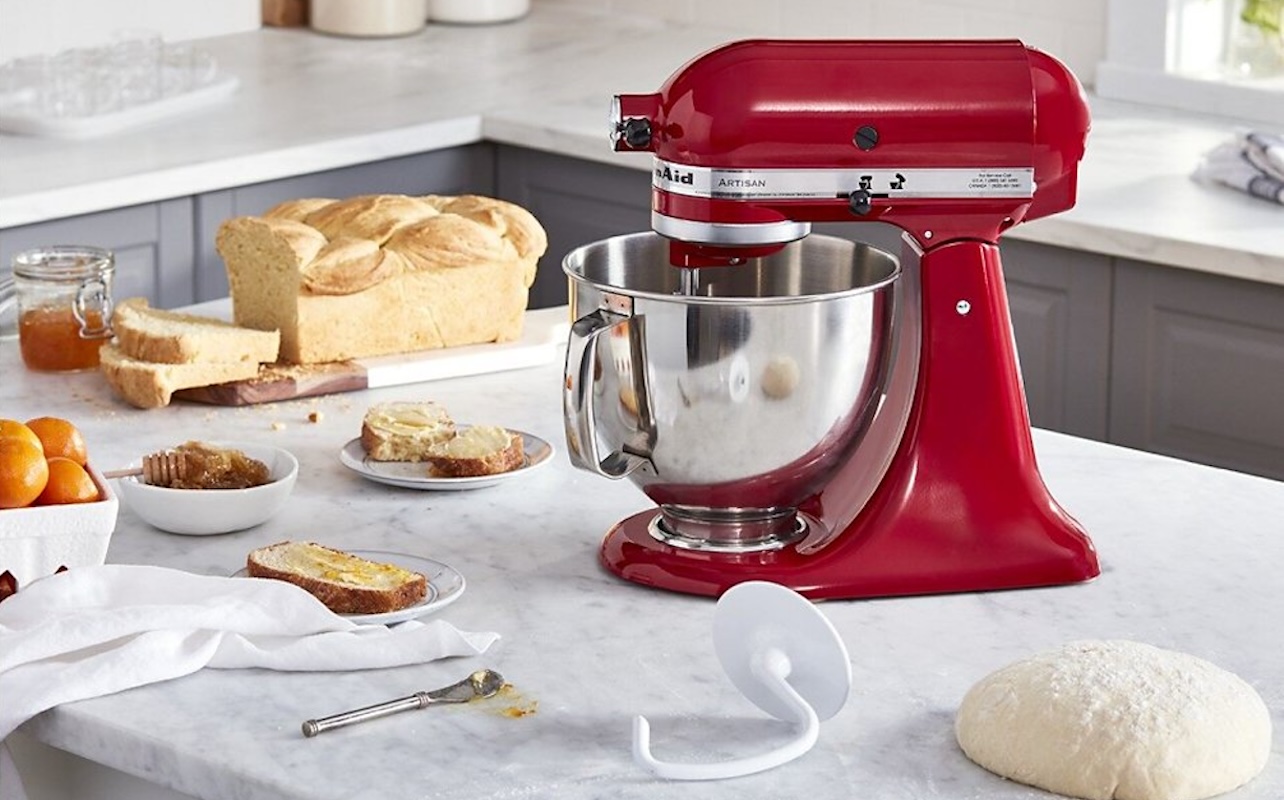
Here’s a quick comparison to help you visualize the benefits and drawbacks:
| Feature | Hand Mixer | Stand Mixer |
|---|---|---|
| Portability | Lightweight, easy to store | Heavy, takes up counter space |
| Power | Less powerful | Strong motor for tough jobs |
| Ease of use | Great for quick tasks | Hands-free mixing |
| Cost | More affordable | More expensive |
| Versatility | Limited to mixing/beating | Add-ons like pasta cutter and meat grinder |
| Cleaning | Fewer parts, easy to clean | More parts to clean |
| Best for | Light baking, casual bakers | Frequent bakers, heavy-duty tasks |
Which one is right for you?
Choosing between a hand mixer vs stand mixer really comes down to your personal cooking and baking habits. Here are a few questions to help guide your decision.
You’ll love a hand mixer if:
- You bake occasionally or mostly make small batches of items like cookies, muffins, icing, or whipped cream.
- Your kitchen is short on space.
- You’re looking for an affordable option that gets the job done.
- You want something lightweight and easy to store.
Hand mixers are also a solid choice if you’re new to baking and want to build confidence before investing in a more expensive appliance. Not sure how it compares to other gadgets? Check out this post on Hand mixers vs. immersion blenders: Which one belongs in your kitchen? for more insight.
A stand mixer might be your perfect match if:
- You bake often or love making bread, pizza dough, or multi-layer cakes.
- You like the idea of multitasking while your mixer does the work.
- You’re interested in investing in a kitchen appliance that can handle a variety of diferent tasks with attachments.
- You have the counter space to accommodate a larger, heavier appliance.
Some serious home bakers even end up owning both. A hand mixer for quick jobs, and a stand mixer for the heavy lifting—it’s the best of both worlds!
Choose the mixer that matches your kitchen lifestyle
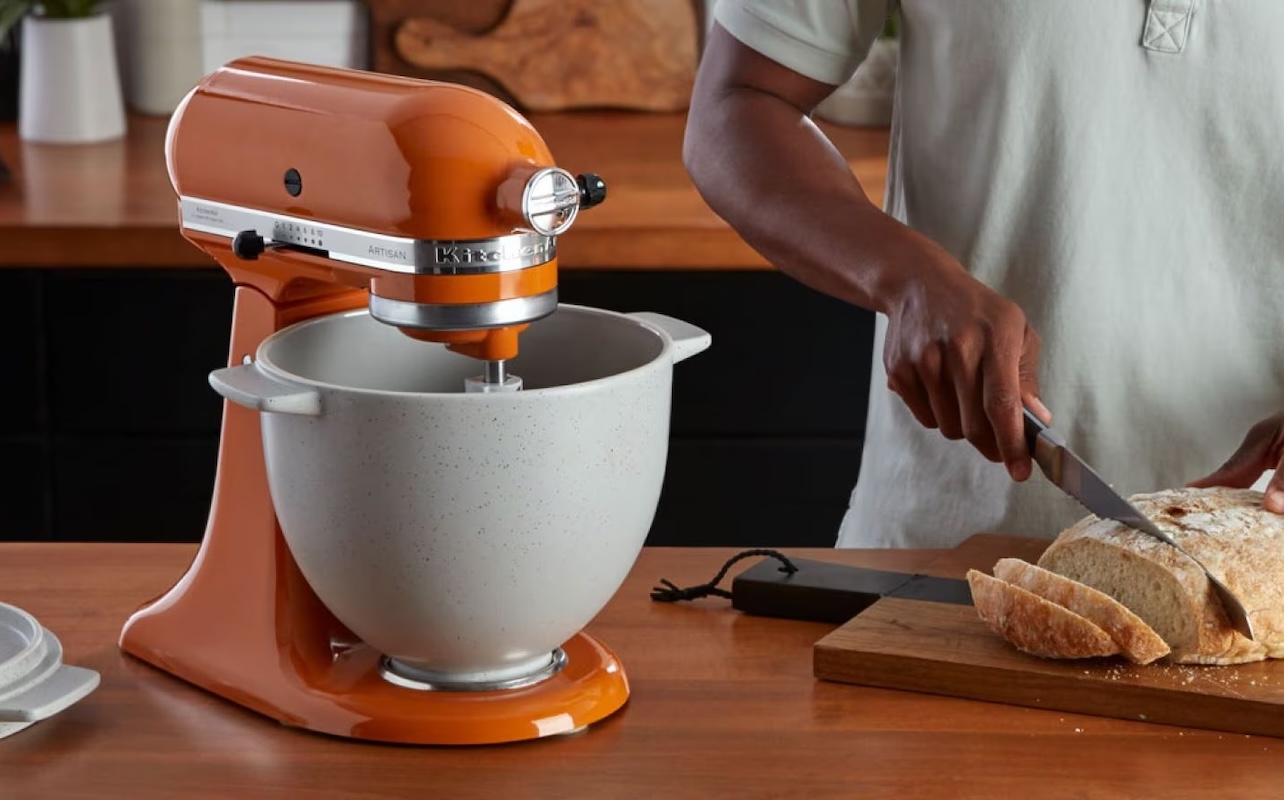
At the end of the day, there’s no wrong choice in the hand mixer vs. stand mixer debate—just the right choice for your needs. If you’re a casual baker with limited space or budget, a hand mixer will be more than up to the task. If you’re dreaming of homemade bread, pasta, or big baking projects, a stand mixer will better be able to help you level up your kitchen game.
Still unsure? Browse the full range of mixers at Best Buy Canada to compare options. Whether you’re eyeing a stand mixer or exploring hand mixers, you’re sure to find a model that fits your kitchen, your lifestyle, and your budget.
Happy baking — and mixing!
This article was drafted using AI technology and then reviewed, fact-checked, and revised by a member of our editorial team.






I’m always torn between the two! I love that you pointed out that hand mixers are more compact and portable. For someone with limited kitchen space, that could really be a deciding factor.